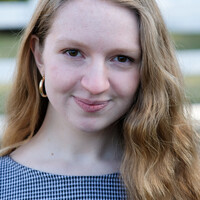Presence of Bacteria and Antibiotic Resistance in Water Sites on San Cristóbal Island
The Galápagos Islands are a microcosm of the intricate relationships between people, animals, and the environment. This tourist hub attracts individuals from all over the world to snorkel with sea lions, catch some shade under mangrove trees, and practice their Spanish skills as they meet local shop owners. However, usually only visiting for a few days and spending their nights on cruise ships, tourists tend to miss many aspects of the Galapagueño reality. The archipelago’s isolated nature and scarcity of resources give way to daily challenges such as a lack of proper waste management and potable water. Untreated wastewater is released into the ocean, and metagenomic sequencing has indicated that antibiotic-resistant bacteria are present in this water. Other contributing factors to this issue include the lack of adequate healthcare systems on the islands and unregulated access to antibiotics. This poses concerns for the health of locals and visitors who swim in Galapagos beaches, as well as for all organisms within the marine ecosystem.
To combat this problem, the Beiting Lab, in collaboration with the Galápagos Education and Research Alliance (GERA), has developed an environmental antibiotic resistance testing protocol on San Cristóbal Island. Our project this summer aimed to further the lab’s previous investigations on the microbial content of ocean water, which revealed multiple antibiotic resistance genes surrounding the port city of Puerto Baquerizo Moreno. We expanded upon this study by testing the ability of specific antibiotics to inhibit the growth of bacteria found in these waters. Using portable methods, we collected and analyzed water samples at various sites on the island to identify relative quantities of human and animal fecal bacteria between sites, screen fecal coliform isolates for resistance to various antibiotics, and identify E. coli phylotypes.
Recognizing that research in the Galápagos has often been conducted within a framework that does not take local perspectives into account, our approach aimed to challenge this trend by empowering aspiring scientists within the community to participate in our experiments and gain a deeper understanding of the importance of antimicrobial resistance for public health and biodiversity. Throughout our time on the island, we visited primary schools to teach students about the scientific method to understand how we can hypothesize and perform experiments to determine relative quantities of bacterial colonies in water samples from familiar locations in San Cristóbal. We also collaborated with a local high school student, Demmi Castillo, to teach her how to collect and plate water samples, and this work has continued after our departure.
Preliminary results have suggested higher presence of bacteria at certain tested sites, and have shown animal fecal contamination at all tested sites, with human fecal contamination appearing at least once for almost every site. Furthermore, some tested bacteria showed an ability to resist inhibition by one or more antibiotics. We look forward to completing more analysis and gaining a more comprehensive idea of the prevalence of antibiotic resistance, especially as it varies across sites and may relate to the presence of wastewater.


Comments